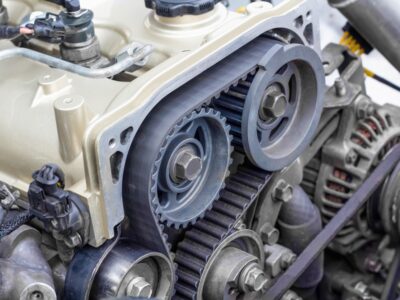
Peugeot 208 Engine Oil Guide: The Complete Maintenance and Oil Type Handbook

The Peugeot 208 has earned a strong reputation as one of Europe’s most stylish and efficient small cars. Whether you drive a sporty GTi, a fuel-efficient BlueHDi diesel, or the practical PureTech petrol version, choosing the right engine oil is key to keeping your 208 running at peak performance. In this in-depth guide, we’ll explain everything you need to know — from oil types and capacities to change intervals and maintenance tips — ensuring your Peugeot stays smooth, quiet, and reliable for years to come.
- Understanding the Role of Engine Oil in the Peugeot 208
- Recommended Peugeot 208 Engine Oil Types
- Oil Capacity for Peugeot 208 Engines
- Oil Change Intervals: When to Replace Engine Oil
- How to Check Engine Oil Level in the Peugeot 208
- Signs Your Peugeot 208 Needs an Oil Change
- DIY Oil Change for Peugeot 208: Step-by-Step
- How to Save Money on Oil Changes
- Choosing the Best Engine Oil Brands for Peugeot 208
- Common Oil-Related Issues in the Peugeot 208
- Peugeot 208 e-208: Does It Need Engine Oil?
- Conclusion: Keep Your Peugeot 208 at Its Best
- FAQs About Peugeot 208 Engine Oil
Understanding the Role of Engine Oil in the Peugeot 208
Engine oil is more than just lubrication — it’s the lifeblood of your Peugeot’s engine. It protects moving parts from friction, helps maintain temperature stability, and prevents wear, corrosion, and sludge buildup. Without the right oil, even the most advanced PureTech or BlueHDi engine can suffer premature wear or reduced efficiency.
Recommended Peugeot 208 Engine Oil Types
Peugeot specifies low-viscosity synthetic oils designed to meet strict emission and fuel economy standards. The recommended viscosity grades for most 208 engines are 0W-30 or 5W-30, depending on your model and production year.
| Engine Type | Model Years | Recommended Oil Viscosity | Specification Standard |
|---|---|---|---|
| 1.0i VTi Petrol | 2012–2022 | 0W-30 or 5W-30 | PSA B71 2290 / ACEA C2 |
| 1.2 PureTech Petrol | 2012–2022 | 0W-30 | PSA B71 2312 / ACEA C2 |
| 1.4 HDi Diesel | 2012–2022 | 0W-30 or 5W-30 | ACEA C2 / C3 |
| 1.5 BlueHDi Diesel | 2012–2022 | 0W-30 | PSA B71 2312 / ACEA C2 |
| 1.6 HDi / BlueHDi | 2012–2022 | 0W-30 | ACEA C2 |
| 1.6 GTi Petrol | 2012–2022 | 0W-30 | ACEA A5 / B5 |
Expert Tip: Always check your owner’s manual or service sticker to confirm the correct oil specification for your VIN and production year. Peugeot’s oil approval codes (like B71 2290) ensure compatibility with emission systems such as the DPF (Diesel Particulate Filter).
Oil Capacity for Peugeot 208 Engines
Oil capacity varies between engines due to design differences in sump size and lubrication systems. Always replace the oil filter when changing the oil to ensure complete protection.
| Engine Variant | Engine Power (kW) | Oil Capacity (Litres) |
|---|---|---|
| 1.0i VTi | 50–55 kW | 3.25 L |
| 1.2 PureTech | 60–81 kW | 3.25 L |
| 1.4 HDi / e-HDi | 50–68 kW | 3.75 L |
| 1.5 BlueHDi | 75–96 kW | 3.75 L |
| 1.6 HDi | 68–88 kW | 3.75 L |
| 1.6 GTi | 153 kW | 4.25 L |
Note: Overfilling engine oil can cause foaming and increased crankcase pressure, while underfilling leads to insufficient lubrication. Aim to keep the level between MIN and MAX marks on the dipstick.
Oil Change Intervals: When to Replace Engine Oil
Peugeot recommends oil changes every 20,000–30,000 km or once per year, whichever comes first. However, this can vary based on driving conditions:
You may be interested in reading Peugeot 208 Boot Space: Full Guide to Capacity, Dimensions & Comparisons (2025)
Peugeot 208 Boot Space: Full Guide to Capacity, Dimensions & Comparisons (2025)- Standard conditions: 30,000 km or 12 months
- Severe conditions: 15,000–20,000 km or 12 months
(e.g., frequent short trips, stop-and-go traffic, high humidity, dusty roads)
The Peugeot e-208 electric model doesn’t require engine oil, but its reduction gear oil should be checked during routine servicing.
How to Check Engine Oil Level in the Peugeot 208
Keeping track of your oil level is a quick task that can prevent costly repairs. Follow these simple steps:
Step-by-Step Oil Check
- Park on level ground and wait for the engine to cool.
- Locate the dipstick — typically a yellow or orange loop handle near the front of the engine.
- Remove and wipe clean the dipstick with a lint-free cloth.
- Reinsert fully, then remove again to inspect the level.
- Ensure the oil is between MIN and MAX marks.
- Inspect oil color — clear amber means healthy oil, while dark or gritty oil suggests contamination.
- Top up with approved oil if needed, but never exceed the maximum mark.
Signs Your Peugeot 208 Needs an Oil Change
Even if you’re tracking your service intervals, certain symptoms indicate your oil is aging or contaminated:
- Oil warning light or “Service” message on the dashboard.
- Loud engine noises (tapping, ticking, or knocking).
- Burnt oil smell after driving.
- Increased fuel consumption or sluggish acceleration.
- Dark, thick, or gritty oil on the dipstick.
Address these signs promptly — old oil loses its ability to protect, leading to premature engine wear.
DIY Oil Change for Peugeot 208: Step-by-Step
Performing your own oil change can save money and give you greater control over maintenance quality.
Required Tools and Materials
- Approved 0W-30 or 5W-30 engine oil
- Oil filter (OEM or equivalent)
- 14 mm drain plug socket
- Oil drain pan
- Funnel and clean rags
- Torque wrench
DIY Procedure
- Warm up the engine slightly to thin the oil.
- Lift the car safely using ramps or a jack with axle stands.
- Remove the oil filler cap (top of the engine).
- Undo the drain plug under the sump and drain old oil completely.
- Replace the oil filter — lubricate the rubber seal before fitting.
- Reinstall drain plug and tighten to the manufacturer’s torque (usually 25–30 Nm).
- Add new oil using a funnel, check the dipstick, and top up as needed.
- Start the engine, let it idle, then recheck the level after a few minutes.
Dispose of used oil responsibly at a recycling center or automotive service point.
How to Save Money on Oil Changes
Even if you prefer having your oil changed at a workshop, you can still save significantly:
You may be interested in reading Peugeot 208 Boot Space: Full Guide to Capacity, Dimensions & Comparisons (2025)
Peugeot 208 Boot Space: Full Guide to Capacity, Dimensions & Comparisons (2025) How to Reset the Service Light on a Peugeot 208: Complete Step-by-Step Guide
How to Reset the Service Light on a Peugeot 208: Complete Step-by-Step Guide- Buy your own oil online or from reputable retailers (e.g., Halfords, Amazon).
- Supply the oil to your garage — many workshops will deduct the cost of their oil.
- Use long-life synthetic oil meeting Peugeot’s extended interval standards.
Choosing the Best Engine Oil Brands for Peugeot 208
While many brands meet Peugeot’s specifications, these are trusted by both dealers and enthusiasts:
- Total Quartz Ineo ECS 5W-30 (official PSA recommendation)
- Castrol EDGE 0W-30 C2
- Mobil 1 ESP 0W-30
- Shell Helix Ultra Professional AM-L 0W-30
Each provides outstanding high-temperature stability, reduced friction, and protection for emission systems.
| Issue | Likely Cause | Solution |
|---|---|---|
| High oil consumption | Worn piston rings or valve seals | Monitor level regularly; inspect engine seals |
| Low oil pressure light | Low oil level or faulty sensor | Check oil level; replace sensor if necessary |
| Diesel particulate filter clogging | Wrong oil type (non-low SAPS) | Use only ACEA C2/C3-compliant oil |
| Oil leaks | Aging gaskets or sump plug washers | Replace seals and use proper torque |
Peugeot 208 e-208: Does It Need Engine Oil?
The Peugeot e-208, being a fully electric model, has no internal combustion engine — therefore, no engine oil is needed. However, periodic checks of gearbox reduction oil and coolant levels remain essential during service intervals.
Conclusion: Keep Your Peugeot 208 at Its Best
Proper engine oil maintenance is the simplest yet most effective way to extend your Peugeot 208’s lifespan. Always use Peugeot-approved synthetic oil, stick to the recommended change intervals, and monitor oil levels monthly. Whether you drive a PureTech petrol, a BlueHDi diesel, or a GTi hot hatch, maintaining clean oil ensures optimal performance, economy, and engine longevity.
FAQs About Peugeot 208 Engine Oil
1. What oil grade should I use for my Peugeot 208?
Use 0W-30 or 5W-30 fully synthetic oil that meets PSA B71 2290 or B71 2312 standards.
2. How often should I change the oil in a Peugeot 208?
Every 20,000–30,000 km or once per year — more frequently for short trips or harsh conditions.
3. Can I use 10W-40 oil in a Peugeot 208?
No, it’s too thick and can affect cold starts and efficiency. Stick to manufacturer-approved viscosities.
 Peugeot 208 Boot Space: Full Guide to Capacity, Dimensions & Comparisons (2025)
Peugeot 208 Boot Space: Full Guide to Capacity, Dimensions & Comparisons (2025) How to Reset the Service Light on a Peugeot 208: Complete Step-by-Step Guide
How to Reset the Service Light on a Peugeot 208: Complete Step-by-Step Guide Peugeot 208 Tyre Pressure Reset: Step-by-Step TPMS Light Guide (2012–2019)
Peugeot 208 Tyre Pressure Reset: Step-by-Step TPMS Light Guide (2012–2019)4. How much oil does the Peugeot 208 GTi need?
The 1.6 GTi requires approximately 4.25 litres of engine oil with filter replacement.
5. What’s the best oil brand for the Peugeot 208?
Total Quartz Ineo ECS 5W-30 is the official recommendation, but Castrol EDGE and Mobil 1 ESP are also top-tier choices.
If you want to know other articles similar to Peugeot 208 Engine Oil Guide: The Complete Maintenance and Oil Type Handbook you can visit the category Service and Parts.
Leave a Reply





More content of your interest